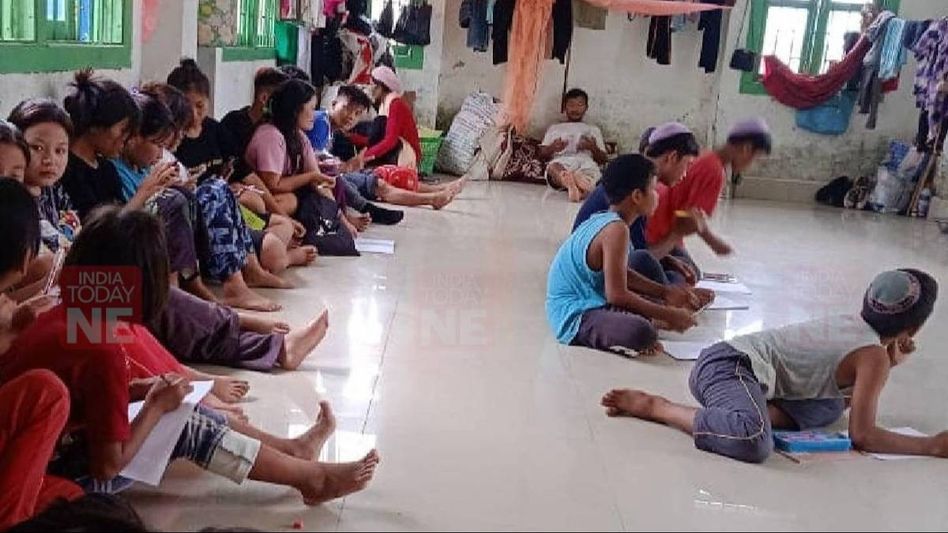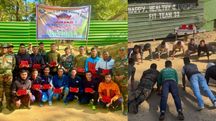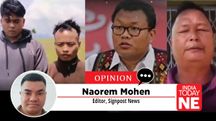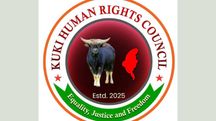From the highlands of Northeast India to Israel: B'nei Menashe's journey of faith and identity
Not tethered to India's ethnic tapestry, the B’nei Menashe trace their roots to the Tibeto-Burmese Mizos in Mizoram and the Kukis in Manipur.
 From the highlands of Northeast India to Israel: B'nei Menashe's journey of faith and identity
From the highlands of Northeast India to Israel: B'nei Menashe's journey of faith and identityIn the hills of northeast India, where the echoes of a tribal past once resonated, a unique chapter in Jewish history unfolds. The B’nei Menashe, a community claiming descent from a "lost" biblical tribe, have etched a remarkable narrative, half of which plays out amidst the hustle of modern Israel, while the other half retains the echoes of a far corner in northeast India.
Not tethered to India's ethnic tapestry, the B’nei Menashe trace their roots to the Tibeto-Burmese Mizos in Mizoram and the Kukis in Manipur. The late 19th-century intrusion of British rule disrupted their traditional tribal society and introduced them to Christianity through British and American missionaries. Yet, the allure of the Bible sparked a revelation among the Kuki-Mizos, drawing parallels between their old, pre-Christian religion and biblical narratives.
Speaking with India Today NE, Isaac Thangjom, the project director of Degel Menashe, weaves a narrative that traverses continents and generations. The story unfolds, encapsulating the unique journey of the B'nei Menashe community — a vibrant tapestry of faith, identity and resilience rooted in the highlands of Northeast India and reaching the sacred lands of Israel.
The B'nei Menashe constitute a distinct sub-community, alongside the Baghdadi, Bnei Israel, and Kochini groups. Originating from the Kuki Mizo community of Manipur and Mizoram, their numbers, totaling around 10,000 witness a heritage that spans generation.
Isaac Thangjom, the driving force behind Degel Menashe, exudes a deep passion for India. Despite his role as the project director in Israel, he maintains a profound connection with his hometown, Imphal, often returning to the roots that anchor his commitment to the B'nei Menashe cause.
In the interview, Thangjom clarifies the terminology, stating "Bnei Menashe" over "Mizo Jews." This distinction is crucial, as the former encompasses the Kuki, Chin and Mizo tribes, each contributing to the rich mosaic of the community's identity.
The story of Degel Menashe unfolds from an oral history project initiated in 2017, under the auspices of the Jewish Federation of New Mexico. This endeavor, involving extensive interviews with elderly B'nei Menashe in Israel, laid the foundation for an organization dedicated to addressing the myriad challenges faced by the community.
In 2019, Degel Menashe officially emerged, recognized as a Non-Profit Organization by the Corporations Authority of Israel. The name "Degel Menashe," translating to "Menashe's Flag" in Hebrew, draws inspiration from the biblical account in the book of Numbers. According to Jewish tradition, the emblem on the tribe of Menashe's flag was the re’em, a long-pronged antelope symbolizing strength and beauty, now incorporated into the organization's logo.
Degel Menashe's mission is both ambitious and far-reaching. Thangjom delineates the organization's goals: to assist the B'nei Menashe community in Israel by promoting integration, educational and vocational advancement, nurturing the younger, Israeli-born generation and safeguarding cultural heritage. In India, the organization seeks to strengthen institutions and facilitate immigration to Israel through all possible means.
Painting a vivid picture of daily life, Thangjom offers insights into the religious observances and practices of the B'nei Menashe community, akin to Jewish communities worldwide. With a significant presence in both Manipur and Mizoram, the community seamlessly incorporates mitzvot, Shabbat, festivals and life cycles into their daily rhythm.
Delving into the community's perception of identity, Thangjom unveils a conscious decision by the B'nei Menashe to revert to the faith of their forefathers. Embedded within the greater Kuki Chin Mizo tribes, their journey symbolizes a profound commitment to preserving traditions and faith in a contemporary context.
Isaac Thangjom also revealed the challenges faced by the B'nei Menashe community due to the ongoing ethnic violence in Manipur. Thangjom expressed concerns about the safety of the community in Imphal stating that it has become a no-go zone since early May, with the fear of potential violence and threats to their lives.
Despite these challenges, Degel Menashe has been actively involved in providing support to the displaced B'nei Menashe people in Manipur and Mizoram. Since the outbreak of ethnic violence in May, the organization has been offering essential assistance such as shelter, food, medicine and clothing to those affected.
Isaac Thangjom highlighted the significance of 2023 for the B'nei Menashe, characterizing it as a pivotal year marked by two wars—the local ethnic conflict between Kukis and Meiteis in Manipur and Israel's war against Hamas. Thangjom stated that, despite the differing scales of these conflicts on a global stage, both have been equally momentous for the B'nei Menashe community.
Speaking on a project for housing homeless B’nei Menashe displaced by the recent ethnic violence in Manipur, Thangjom said that the joint project between Degel Menashe and the B'nei Menashe Council, aimed at providing housing for those displaced by the ethnic violence in Manipur, is progressing. The initial structure, located on 200 acres of land near Lamka, is nearing completion. The building, funded by donations from BMC chairman Lalam Hangshing, is set to house seven small dwelling units (5 +2 auxiliary unit. 4 more are being built right now ) each accommodating one family. The cost per unit is estimated to be around $1,400, contributing to the resettlement of entire families.
Jesse Gangte, the BMC's Manipur treasurer and project director, provided updates on the construction progress. The building will feature communal facilities, including a kitchen, bath, and latrines. The goal is for the complex to be ready for occupancy by Sukkot. Gangte also mentioned that two of the five families have already begun farming adjacent plots, fostering self-sufficiency in food production and potential income from local markets.
The Songpi project, initiated by BMC chairman Lalam Hangshing, is turning from a dream into reality despite the challenging circumstances. The ongoing Meitei-Kuki conflict has heightened the urgency to house the homeless B'nei Menashe, leading to increased interest and initial funding. A three-family unit is under construction, utilizing traditional-style methods and materials, aiming for completion by the end of August or early September.
Thangjom dispels any notion of isolation by affirming the active participation of the B'nei Menashe within the wider Jewish community. With 5000 community members in Israel, collaborations with Jewish organizations and the Israeli government are integral to their existence. Their engagement extends beyond borders, embodying the essence of a global Jewish diaspora.
Thangjom reiterates the organization's commitment to an inclusive mission. The goals of integration, education, vocational advancement and cultural preservation in Israel align with their parallel efforts in India to fortify institutions and facilitate immigration to Israel.
Copyright©2025 Living Media India Limited. For reprint rights: Syndications Today









